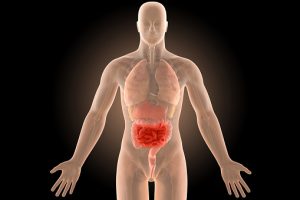
What is the life expectancy of someone with Crohn’s disease?
Crohn’s disease is a chronic inflammatory condition that can include serious complications. Here, we look at Crohn’s disease life expectancy.
When someone has Crohn’s disease, the lining of the digestive system is inflamed. This inflammation can begin from the mouth but is commonly associated with the last section of the small intestine or the large intestine. Suffering from Crohn’s disease can mean that a person experiences diarrhea, abdominal pain, bloody stools, fatigue, and weight loss. Unfortunately, Crohn’s disease can lead to life-threatening complications. This is why many people wonder about life expectancy with Crohn’s disease. Continue reading…
Metamorphopsia is a type of distorted vision symptom or disorder that causes you to view a grid of straight lines to appear wavy and parts of the grid to appear blank. This phenomenon is commonly experienced in different macular disorders, which are disorders of the retina which is responsible for central vision. Continue reading…
What causes excessive stomach acid and how to get rid of it
Stomach acid is important to the digestive system. It helps us process food and it kills harmful bacteria. The stomach makes the hormone called gastrin, which creates hydrochloric acid. When these acid levels increase, it can lead to hyperacidity. Excess stomach acid can range from mild to severe.
Our diet, environment, and even stress can be contributing factors to excessive stomach acid. There are, in fact, relatively simple ways to reduce excess stomach acid or prevent it altogether. Continue reading…
Those that have experienced burning diarrhea already know how unpleasant it can be. If the thought of forceful bowel evacuation isn’t disheartening enough, add to that a burning sensation in the rectum or anus and you can roughly gauge the level of discomfort burning diarrhea sufferers face.
Thankfully, burning diarrhea is not any more serious than more typical forms of diarrhea. Continue reading…
Having high systolic blood pressure or systolic hypertension means you have a larger top number, typically greater than 130, when obtaining a blood pressure reading. Systolic hypertension is the most common type of high blood pressure, especially in older individuals, but often goes unnoticed due to a lack of presenting symptoms.
Blood pressure is the force of blood against vessel walls and is typically measured in millimeters of mercury. Values are given in two numbers: one for systolic blood pressure – top number, and the other for diastolic – bottom number. Both numbers represent the force during a heartbeat and the force during rest, respectively. Continue reading…
[adstoappear]